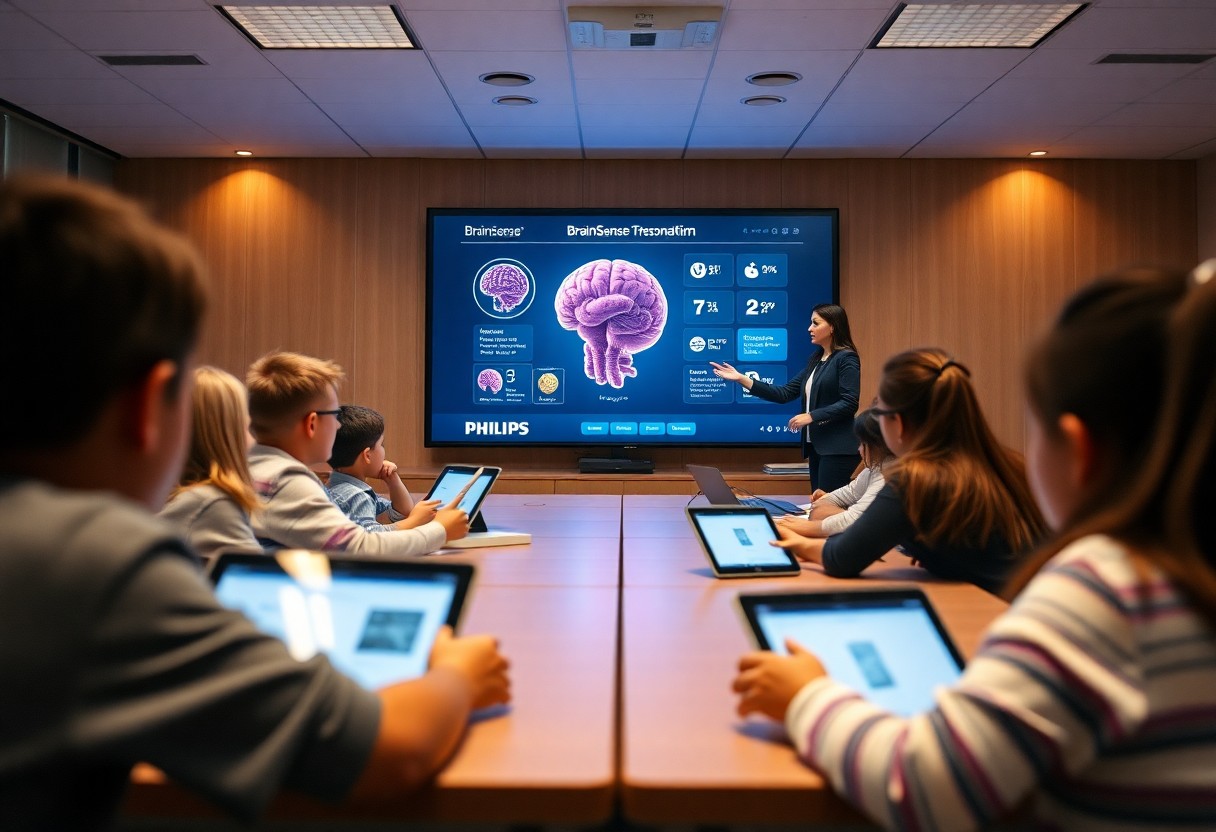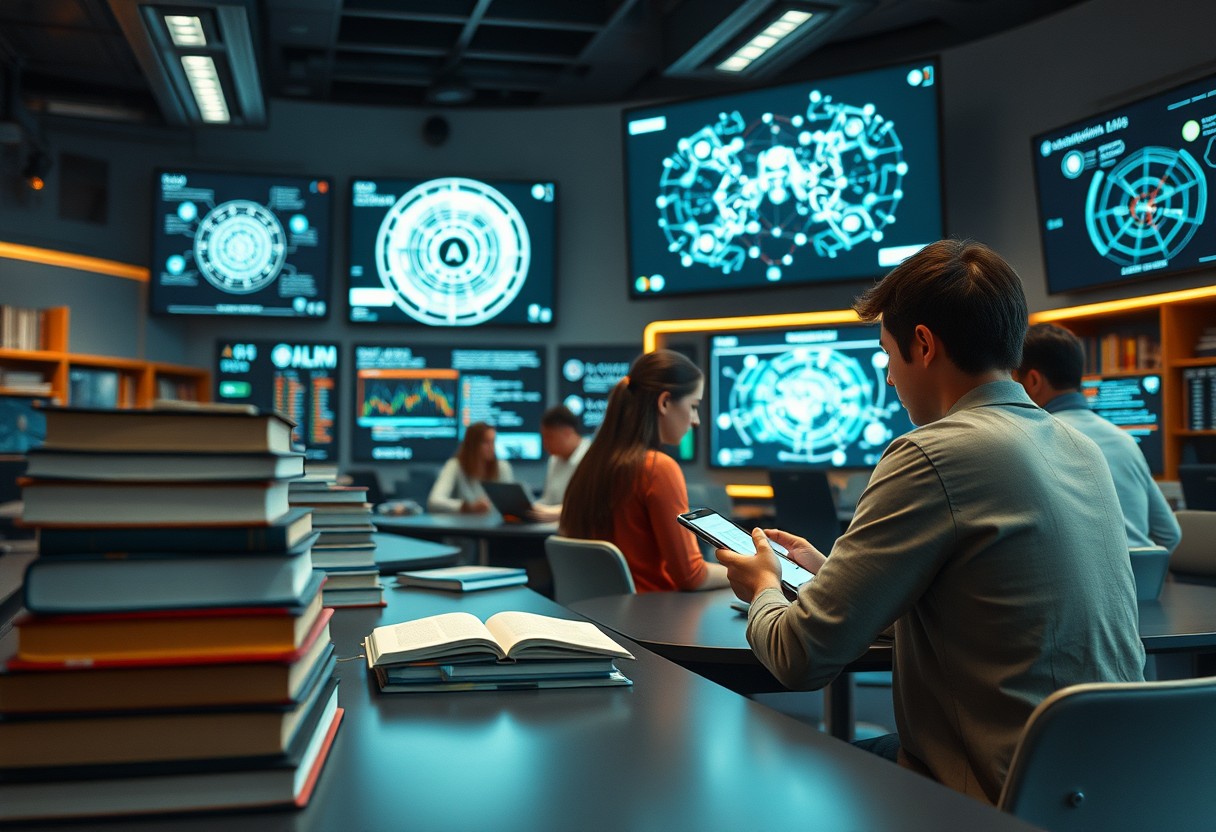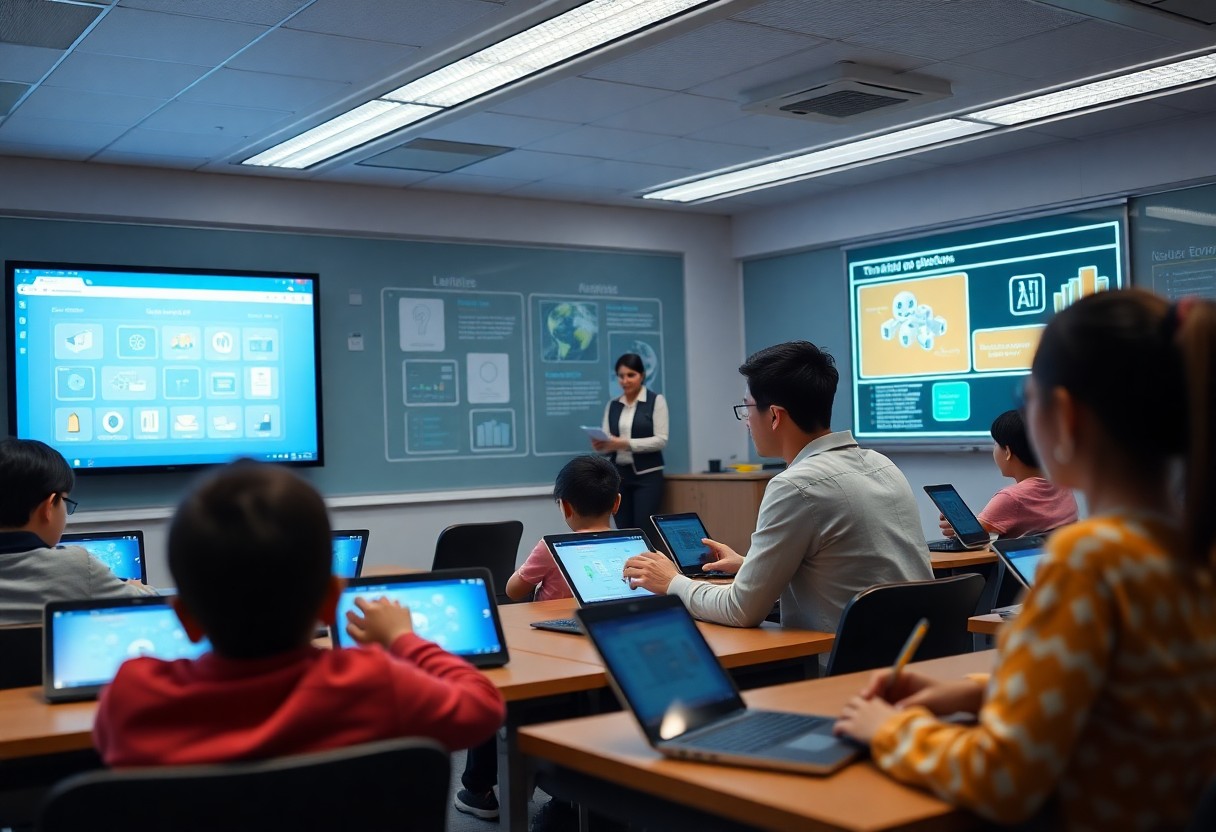Many educators and learners alike are increasingly aware of the significance of cognitive diversity in the learning process. As you navigate your educational journey, adaptive learning engines can play a crucial role in addressing your unique cognitive styles. These innovative technologies leverage data-driven insights to personalize learning experiences, ensuring that you receive content tailored to your preferences and strengths. By understanding how these engines operate, you can enhance your learning efficiency and engagement, paving the way for more effective educational outcomes.
Key Takeaways:
- Personalization: Adaptive learning engines can customize educational content based on individual learning preferences, accommodating visual, auditory, and kinesthetic learners.
- Real-time Feedback: These engines offer immediate feedback, allowing students to reflect on their understanding and adjust their learning strategies accordingly, which is crucial for diverse cognitive styles.
- Dynamic Content Delivery: By utilizing algorithms that analyze student performance, adaptive learning can present material in various formats and difficulty levels, catering to learners’ unique cognitive processes and pacing needs.
Understanding Adaptive Learning Engines
The concept of adaptive learning engines revolves around systems designed to tailor educational experiences to the unique needs and preferences of each learner. By continuously analyzing your interactions and performance, these engines adjust the content and pace to optimize your learning experience, promoting better retention and understanding.
Definition and Functionality
Functionality is central to adaptive learning engines, as they employ algorithms to assess your skills and preferences. This technology delivers personalized content, ensuring that you receive the resources and challenges that align with your individual learning style, while also adjusting in real-time based on your progress.
Key Technologies Used
With the integration of various technologies like Artificial Intelligence, Machine Learning, and Data Analytics, adaptive learning engines transform educational experiences. These tools analyze vast amounts of data, allowing the system to understand your learning behavior and customize pathways accordingly.
Technologies play a pivotal role in the effectiveness of adaptive learning engines. AI and Machine Learning algorithms enhance the system’s ability to predict your needs, while Data Analytics helps identify patterns in your learning behavior. This cumulative knowledge allows the engine to refine its approach, providing you with tailored content that resonates with your cognitive style, ultimately fostering a more engaging and productive learning journey.
Diverse Cognition Styles
Now, it’s crucial to recognize that learners come with varying cognition styles, significantly influencing how they process information. Whether you prefer hands-on experiences, visual aids, or logical reasoning, these diverse styles affect your learning trajectories. Adaptive learning engines can pinpoint these differences and provide tailored educational experiences, ultimately enhancing your engagement and comprehension.
Overview of Cognition Styles
One vital aspect of learning is understanding cognition styles, which refer to the preferred ways individuals perceive, think, and solve problems. These styles can range from analytical to creative thinking and from verbal to spatial reasoning, emphasizing that there is no one-size-fits-all approach to education. Identifying your unique cognition style can empower you to utilize strategies best suited to your learning preferences.
Importance of Personalization
Styles of learning impart significant relevance to personalization in education. Every learner benefits from a unique approach that resonates with their cognitive tendencies, leading to more effective and meaningful learning experiences. Personalized education paves the way for developing your strengths while accommodating your challenges, making learning not only more enjoyable but also more impactful.
Understanding the importance of personalization in education allows you to realize the full potential of adaptive learning engines. By addressing your unique cognition style, these systems can adjust content, pace, and teaching methods to align with your abilities and preferences. This targeted approach ensures a deeper engagement and retention of knowledge, empowering you to thrive in your educational journey.
Mechanisms of Adaptation
Unlike traditional learning models, adaptive learning engines leverage sophisticated algorithms to adjust content delivery based on your unique learning needs. These engines continuously analyze your interaction patterns, ensuring that the educational experience evolves in tandem with your cognitive style. This personalized approach enables you to engage with material in a way that feels intuitive and supports deeper comprehension.
Data-Driven Insights
Any effective adaptive learning system relies heavily on data-driven insights to inform its adaptations. By collecting and analyzing vast amounts of data about your learning behavior and performance, these systems can identify trends and patterns that reveal your strengths and weaknesses. This data not only enables personalized learning paths but also helps in making informed decisions to further enhance your educational experience.
Real-Time Feedback Mechanisms
On the journey of learning, real-time feedback mechanisms play a crucial role in guiding your progress. These systems provide immediate insights into your performance, helping you identify areas that require more attention. By receiving instant feedback, you can adjust your learning strategies on the fly, thereby enhancing both retention and comprehension.
Understanding the importance of real-time feedback is vital for optimizing your learning experience. This feedback can come in various forms, such as quizzes, interactive exercises, or direct evaluations of your submitted work. By continuously receiving immediate updates on your performance, you can pinpoint your mistakes and reinforce your understanding of concepts, facilitating a more dynamic learning process that adapts to your needs in real-time.
Implementing Adaptive Learning for Diverse Learners
Despite the challenges that diverse learning styles present, implementing adaptive learning engines can significantly enhance educational experiences. By focusing on each learner’s unique cognitive processes, adaptive learning platforms promote tailored content delivery, ensuring that you engage effectively with the material. This personalized approach not only aids comprehension but also fosters a more inclusive learning environment, accommodating different preferences and enhancing overall retention of knowledge.
Strategies for Effective Adaptation
The key to effective adaptation lies in continuous assessment and feedback of learners’ progress. By using data-driven insights, you can identify patterns in your strengths and weaknesses, allowing the adaptive learning engine to modify the content accordingly. Strategies such as scaffolding, choice in learning paths, and varied instructional methods are crucial for addressing diverse cognitive styles and ensuring an enriching learning process.
Tools and Platforms Available
To successfully implement adaptive learning, it is crucial to leverage the right tools and platforms that cater to your unique learning needs. Many applications now offer customizable experiences that track your progress and adapt based on your performance.
Learners today have access to a wide range of adaptive learning tools designed to meet various preferences. Platforms like Knewton, Smart Sparrow, and DreamBox Learning offer personalized pathways based on individual proficiency levels, enabling you to work at your own pace. Additionally, these tools often utilize analytics to provide real-time feedback, ensuring that you remain engaged and challenged. By integrating such resources into your study routine, you can enhance your learning experience while effectively catering to your cognitive style.

Benefits of Adaptive Learning Systems
After incorporating adaptive learning systems into educational environments, you can witness significant improvements in learning outcomes. These systems personalize the learning experience, tailoring content and pace to meet your unique cognitive needs. By identifying your strengths and weaknesses, adaptive learning facilitates a quicker understanding of subjects, boosts motivation, and fosters greater academic success.
Enhancing Engagement and Retention
Systems designed with adaptive learning capabilities create a dynamic learning environment that keeps you engaged. By offering personalized content that resonates with your preferred learning style, these systems enhance your retention of information and make the learning process more enjoyable.
Supporting Learner Autonomy
Autonomy is a critical factor in your educational journey, and adaptive learning systems empower you to take control of your own learning process. By allowing you to choose your learning paths and set your own pace, these systems promote independence and self-directed exploration.
For instance, when using an adaptive learning platform, you can select topics that pique your interest, dive deeper into subjects, or revisit challenging material at your convenience. This freedom not only enhances your engagement but also nurtures your confidence as a learner, enabling you to take charge of your educational experience and become more invested in your personal growth.
Challenges and Considerations
Once again, the implementation of adaptive learning engines poses unique challenges that you must navigate. These challenges may include the need for technical infrastructure, the varying levels of readiness among educators, and the potential for inclusivity issues. By acknowledging these barriers and developing strategies to overcome them, you can promote effective adaptation of learning technologies that truly cater to diverse cognitive styles.
Technical and Ethical Considerations
On the technological front, you need to ensure that adaptive learning engines are accessible to all learners, regardless of their socio-economic background. Additionally, ethical considerations regarding data privacy and security must be taken into account to protect sensitive learner information. By balancing these factors, you can effectively implement adaptive solutions that respect user rights and promote equitable learning experiences.
Teacher and Learner Roles
Technical shifts in education necessitate a redefinition of both teacher and learner roles within adaptive learning environments. You, as an educator, will transition from being the primary source of knowledge to a facilitator who guides your students through personalized learning pathways. Meanwhile, learners are empowered to take charge of their education, making choices based on their unique cognitive styles and preferences.
A successful adaptive learning environment hinges on your ability to foster collaboration and communication between educators and learners. By embracing this new dynamic, you can create an engaging atmosphere that empowers your students to actively participate in their learning journeys. This not only enhances their cognitive engagement but also encourages greater ownership of their educational outcomes. Your role as a supportive guide, coupled with their autonomy, will lead to a more enriched learning experience for everyone involved.
Conclusion
Conclusively, adaptive learning engines are designed to recognize and respond to your unique cognitive styles by customizing content delivery, pacing, and assessment methods. By leveraging algorithms and data analytics, these engines can identify your strengths, weaknesses, and preferred learning modalities, enabling a personalized learning experience that enhances your understanding and retention of material. This adaptability not only fosters greater engagement but also empowers you to take ownership of your learning journey, ultimately aligning educational outcomes with your individual needs and preferences.
FAQ
Q: How do adaptive learning engines identify and accommodate different cognitive styles in learners?
A: Adaptive learning engines utilize a variety of assessment tools to identify learners’ cognitive styles, often through initial diagnostic tests, pattern recognition in user interactions, and continual performance analytics. By collecting data on how learners engage with material—such as their response times, preferences for visual versus textual information, and problem-solving approaches—the adaptive system can tailor content delivery. For example, if a learner prefers visual aids, the engine will present information through infographics or videos, while a verbal learner might receive more textual content and discussions. This personalized experience can enhance understanding and retention by aligning educational materials with individual learning preferences.
Q: What role does feedback play in the adaptive learning process for diverse cognitive styles?
A: Feedback is crucial in adaptive learning, as it not only provides learners with information about their performance but also helps the adaptive learning engine refine its understanding of each learner’s cognitive style. Different cognitive styles may benefit from distinct types of feedback—visual learners might appreciate graphs showing their progress, while analytical thinkers may prefer detailed explanations about correct and incorrect answers. The adaptive system uses real-time feedback to modify learning paths, presenting challenges or supports appropriate to individual needs, thereby fostering an interactive and responsive learning environment that caters to all types of learners.
Q: Can adaptive learning technologies support collaborative learning among students with varying cognitive styles?
A: Yes, adaptive learning technologies can effectively support collaborative learning by facilitating diverse cognitive interactions among students. Such technologies often include features that allow learners with different cognitive styles to work together on projects or assignments. For instance, the system can group students based on complementary cognitive preferences—such as pairing a visual learner with a verbal learner to enhance mutual understanding. Furthermore, through collaborative tools like discussion forums or shared workspaces, adaptive learning engines can promote diverse cognitive approaches, giving all learners the opportunity to contribute their strengths while also learning from others, thereby creating a rich and inclusive educational experience.




